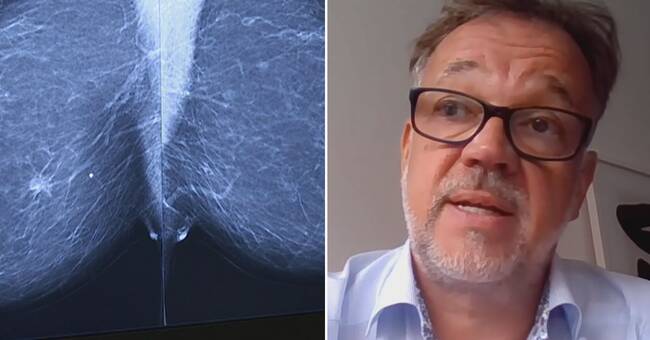Between March and August this year, 12.5 percent fewer cancer cases were detected than the year before.
The underlying reasons are stated to be that fewer than usual have sought care and that screenings have been canceled, which also Swedish Radio Ekot reported.
- Fewer people have sought care for symptoms or signs of cancer, says Hans Hägglund, national cancer coordinator at Sweden's municipalities and regions, SKR, and chairman of RCC.
Cancer care in general has been a priority during this period and has worked well, according to Hans Hägglund, but temporary closures and reductions in screening activities have contributed to fewer cancer cases detected.
Screening resumes
Breast cancer screening takes place in 29 care units, where more than half have paused completely or reduced for a period.
Screening for cervical cancer has also been paused in several regions.
- But now the breast cancer screening is underway again with certain restrictions.
When it comes to cervical cancer, it is not going on everywhere yet.
The earlier the cancer is detected, the better the prognosis and quality of life after treatment for the patient.
Therefore, it can be serious if diagnoses are delayed.
- We do not know exactly which tumor types it is about here.
If it is breast cancer that has a fairly good prognosis, you can give a little extra treatment and then the risk of dying probably does not increase.
But other types of cancer with a faster course can mean a worse prognosis and an increased number of deaths due to it, says Hans Hägglund.
The call: Seek care
To get a clearer picture, you need to analyze what diagnoses and types of cancer it is about, how aggressive the tumors are and what age the patients are.
- The important thing now is that we encourage everyone to seek care if they have symptoms or signs of cancer, and if you receive a summons for screening, you should go for it, says Hans Hägglund.
What do you think about the fact that screening was canceled, could it have been avoided?
- At that stage we were at that time, with a rapid spread of infection and a low state of knowledge about the virus, the overall assessment was that it was wisest.
But before the next crisis, it is important that we, now that we know more, can have a dialogue about how the screening can be maintained in the best possible way even during times of crisis.

